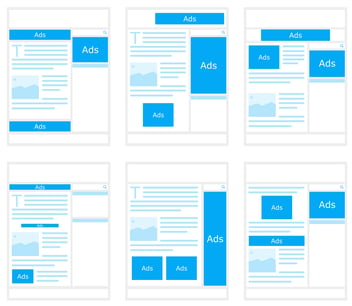Getting ranked on page 1 of Google searches is the holy grail of SEO.
Why is this so important? How's this for a statistic? 93% of buying decisions begin with an online search and well over 80% of all Google clicks come from the first page of search engine results. So, now that we've established the importance of getting to page one of Google, let's talk about how to do it!
Let's begin our discussion about ranking on Google and proper SEO with this.... Google's algorithm is TOP SECRET and you should be very cautious of anyone telling you they KNOW exactly how the Google algorithm works. There is no trick, nor is there a "silver bullet" to reaching the top of Google's search results. However there are strategies that can be used that are based off of information Google has provided regarding what they like to see, and perhaps more importantly, what they don't!
A good place to start if you want to learn about SEO is too understand at the most basic level what Google is trying to accomplish. Google's goal is simply to provide the highest quality, most relevant content to users of it's search engine. It's really that simple. So, in order to create high quality, relevant content, you have to first understand what Google believes quality content is as well as what it is not.

Panda and Penguin
Major updates to the Google algorithm took place over the last two years. These are known as "Panda" - 2011 and "Penguin" - 2012. If we take a look at what these updates did, it will provide good clues as to how to write content Google might deem "high quality."
Panda was implemented to target sites and pages with duplicated and/or "thin" content. Duplicated content refers to pages that have identical or nearly identical content or pages that provide little if any unique content. "Thin" content can be defined as content that is too short, vague, or loaded with spelling and grammatical errors.
Penguin on the other hand was implemented to target various "tricks" that people have used to artificially inflate the perceived value of their site. Good examples of this would be keyword stuffing or utilizing services who charge a fee to create artificial inbound links.
Both of these updates are focused primarily on weeding out bad content and promoting the highest quality sites. Google is telling us loud and clear that quality site content is going to be a MAJOR factor and likely THE most important factor in site ranking now and in the future.
Prior to these two latest updates, "Reputation" was weighted much more heavily. Reputation was based on how many sites referenced or "linked" to a particular page or site. This "reputation" theory is rooted in Google's beginnings. The original algorithm was based off of studies of research papers. Google's founders realized that the more times a particular document was referenced by other sources, the greater the likelihood of that content being both relevant and high quality. Seems logical, right?
In theory, that works great. However, as people figured out how to create artificial back links and in turn manipulate results, there was an impact to the quality of the search results. By implementing Panda and Penguin, Google is increasing the importance of quality content and punishing sites for poor quality content and tactics used in an attempt to manipulate the algorithm. Reputation is still important, but reputation through deception will be punished.
So how do you get to page 1 of Google? Here are a few tips to get you started.
-
Write quality content that is useful to the reader. It doesn't take a genius to understand that the search engine that returns the best content is better than one that returns garbage. Google will continue to strive to return the highest quality, most relevant content to it's users. That is pretty much a guarantee.
-
Create content consistently. Content often loses relevancy with age. Google likes to see new content so keep at it. Writing one quality page is good, writing 100 is great! (hint: try blogging!)
-
Have a keyword strategy when you are writing. Write relevant content that people will search for and make sure the keywords you are trying to rank on fit into the content naturally.
and finally...
-
Much like Google's official (unofficial) mission statement says... "Don't be Evil". Tricks will get you punished and Google is cracking down.
Good Luck!

